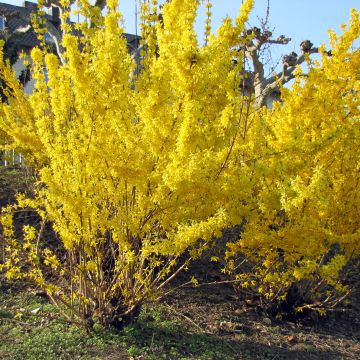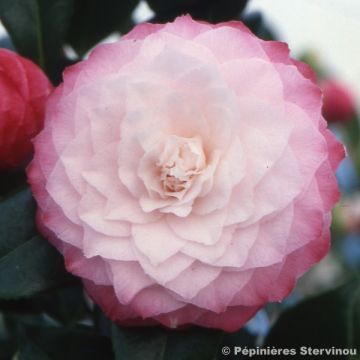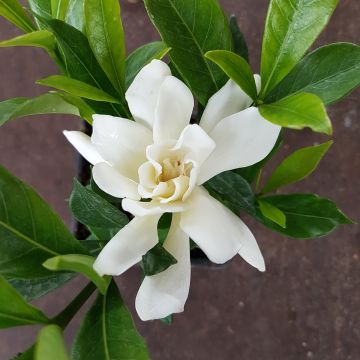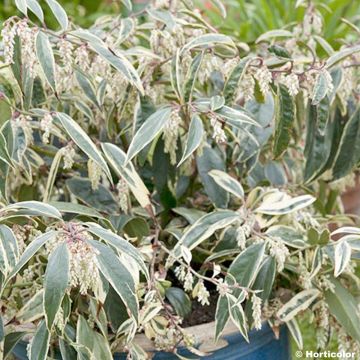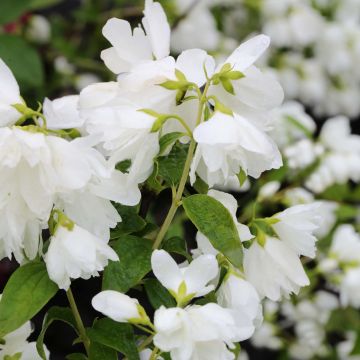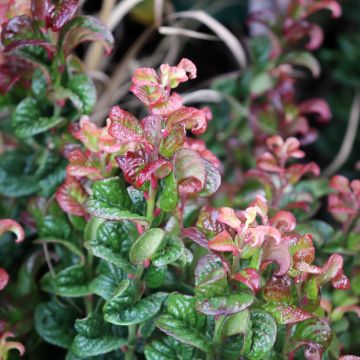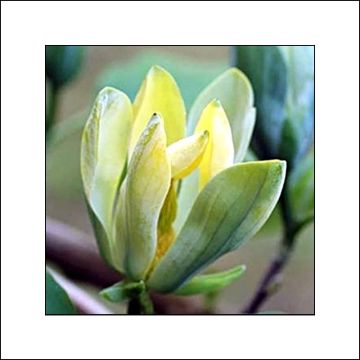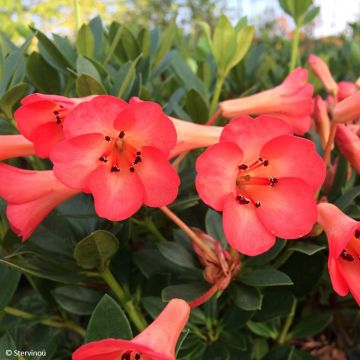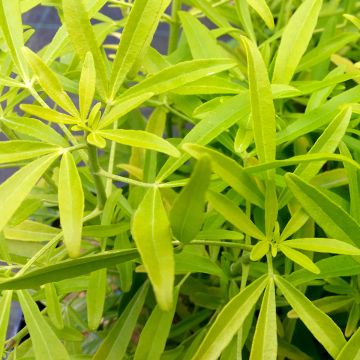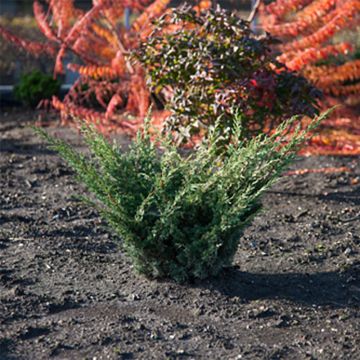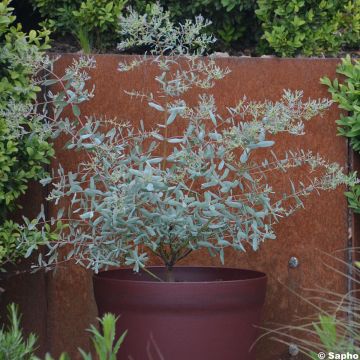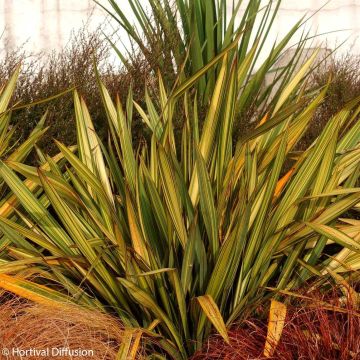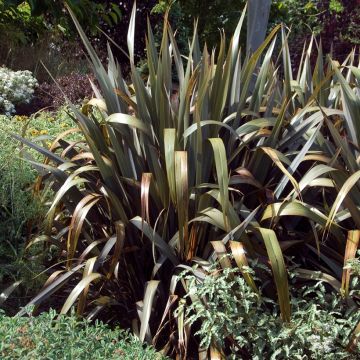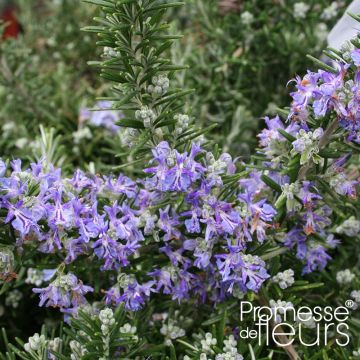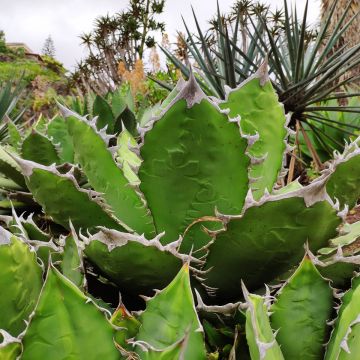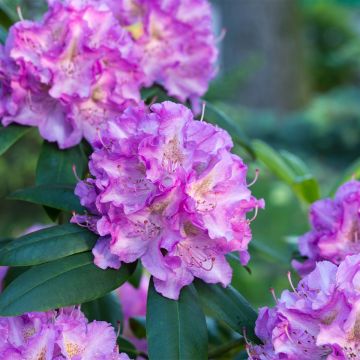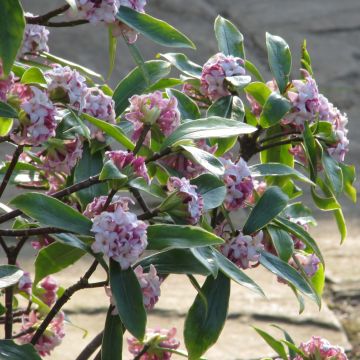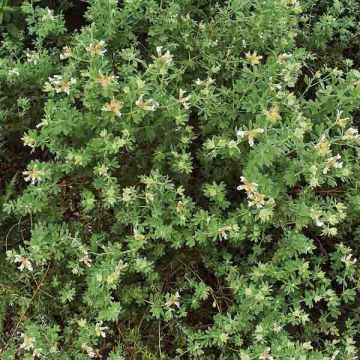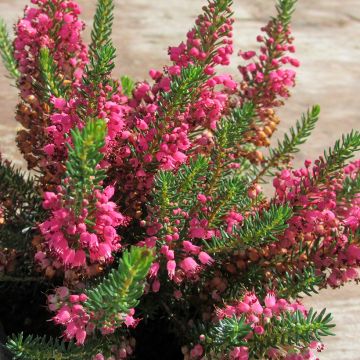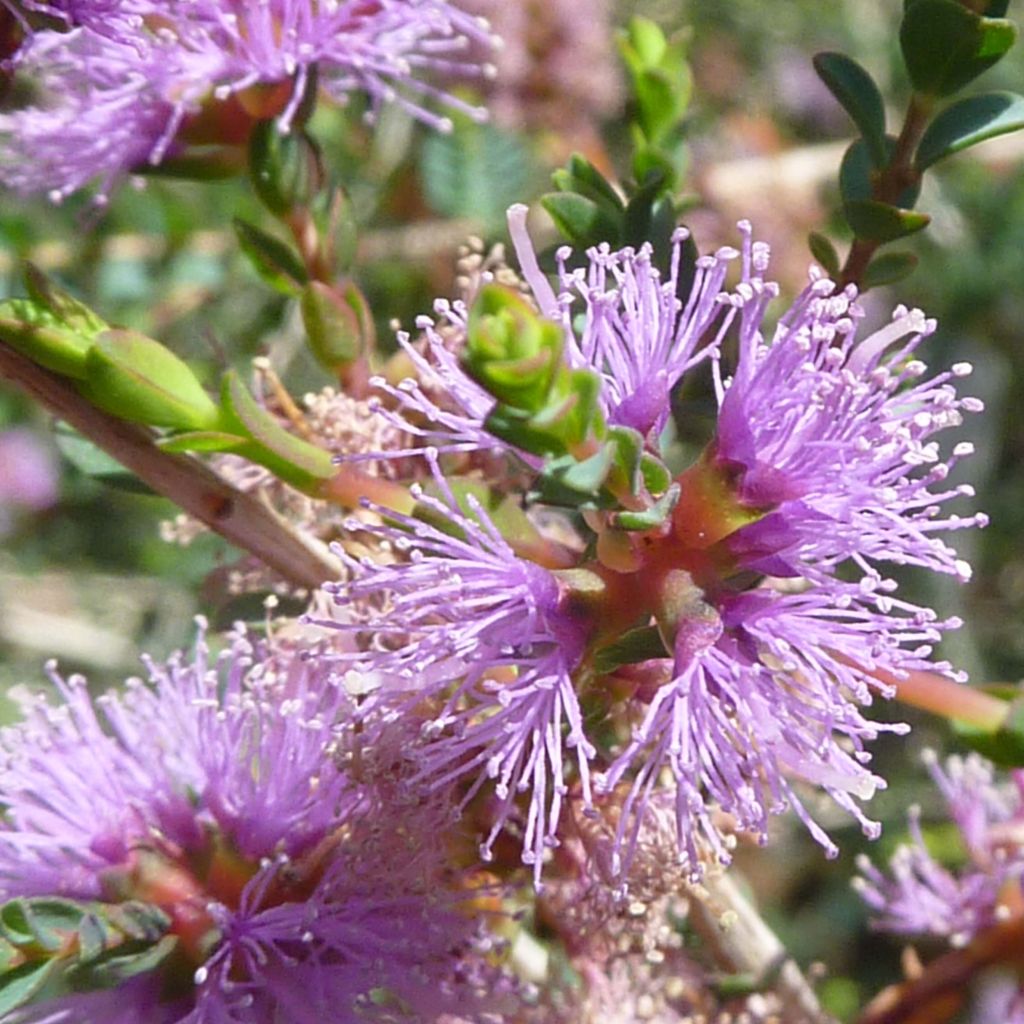

Melaleuca gibbosa - Cajeputier
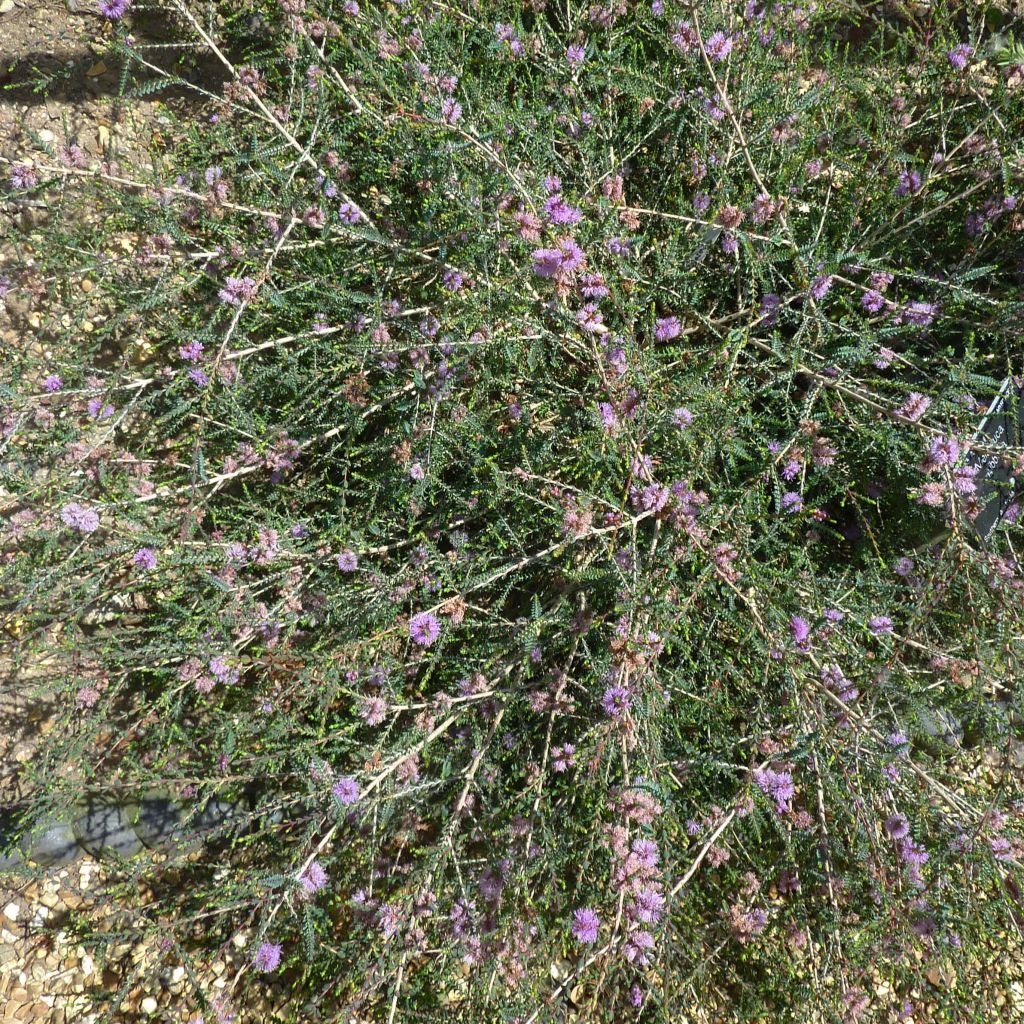

Melaleuca gibbosa - Cajeputier
Melaleuca gibbosa
Melaleuca gibbosa
Slender honey Myrtle, Cajeput Tree
A lovely little bush, purchased last spring, has provided us with a bountiful flowering this year. It is advertised as melliferous, and it was partly for this characteristic that we bought it. However, the pollinators, which are numerous in our garden (bees, bumblebees, hoverflies, butterflies, etc.), have completely ignored it! Is it only visited by pollinators in its native region?
Anne, 12/05/2022
This item cannot be shipped to the selected country
Delivery charge from €5.90
More information
Schedule delivery date,
and select date in basket
This plant carries a 24 months recovery warranty
More information
We guarantee the quality of our plants for a full growing cycle, and will replace at our expense any plant that fails to recover under normal climatic and planting conditions.
From €5.90 for pickup delivery and €6.90 for home delivery
Express home delivery from €8.90.

Does this plant fit my garden?
Set up your Plantfit profile →
Description
Melaleuca gibbosa, also known as Cajeput Tree, is perhaps better known as Niaouli, a name that encompasses all the bushes of the Melaleuca genus. This is a small Australian bush that is very accommodating, hardy to at least -7°C (19.4°F), tolerant of occasionally dry and poor soils as well as waterlogged ones. It forms a bunch of arched stems, covered with aromatic foliage, where numerous purple flowers resembling small bottle brushes bloom from spring to autumn and sometimes throughout the year depending on the region. Its cultivation in the ground is reserved for mild, oceanic, or Mediterranean climates. However, it adapts very well to container cultivation, to be stored indoors during winter elsewhere.
Native to the southern coasts of Australia and Tasmania, Melaleuca gibbosa sprinkles swampy heathlands and windswept areas up to 1500m (4921ft) altitude. The name of the Melaleuca genus is derived from Greek, meaning black and white, characterising its dark bark at the trunk level and white at the branch level. Its species name, gibbosa, meaning "hunchbacked," refers to the lumpy appearance of its branches covered with fruits sunken into their bark. It belongs to the Myrtaceae family, just like its Australian cousins Leptospermum and Eucalyptus, and its Mediterranean relatives Myrtus.
It grows naturally in regions with a mild oceanic climate, as well as in intermittently dry areas, mostly on mineral-poor, leached, rather acidic soil but on limestone substrates. It forms a small, dense, ramified bush, reaching a height of 1m (3ft) and a width of 1.2m (4ft), with a rather fast growth rate. This bush with trailing branches bears small aromatic leaves that are alternate, ovate to obovate, arranged in opposite pairs, with each pair of leaves inserted at a right angle to the next one. Their colour ranges from bluish-green to greyish-green. The slightly fragrant, honey-bearing and nectar-bearing flowers appear at different times of the year, as this plant adapts to the climate and soil it encounters. The flowers are composed of long purple stamens that turn white as they fade. They are grouped in spikes of 4 to 10, taking the form of small bottle brushes at the end of the branches. They produce woody capsules, sunken into the bark, containing seeds that take one to two years to mature. This bush can be lightly pruned after flowering, from May to July.
The Cajeput Tree adapts to almost all soils, even limestone ones, waterlogged or dry in summer. It can withstand frosts of around -8°C (17.6°F), but the aboveground parts can be damaged from -5°C (23°F). It should be placed in a sheltered spot, in full sun but not a scorching position. It tolerates sea spray well, making it a beautiful small hedge bush for coastal gardens. It is cultivated and used like Callistemons: it can be planted as a standalone or in groups, with Grevilleas, Leptospermums, and Callistemons. It can also be used to create an evergreen hedge alongside Myrtles, evergreen ceanothuses, large cistuses (Cistus laurifolius, Cistus x aguilari), Feijoa, Rose Laurels, and lavenders. In regions with very cold winters, the plant should be grown in a pot and protected from frost throughout the winter.
Report an error about the product description
Melaleuca gibbosa in pictures
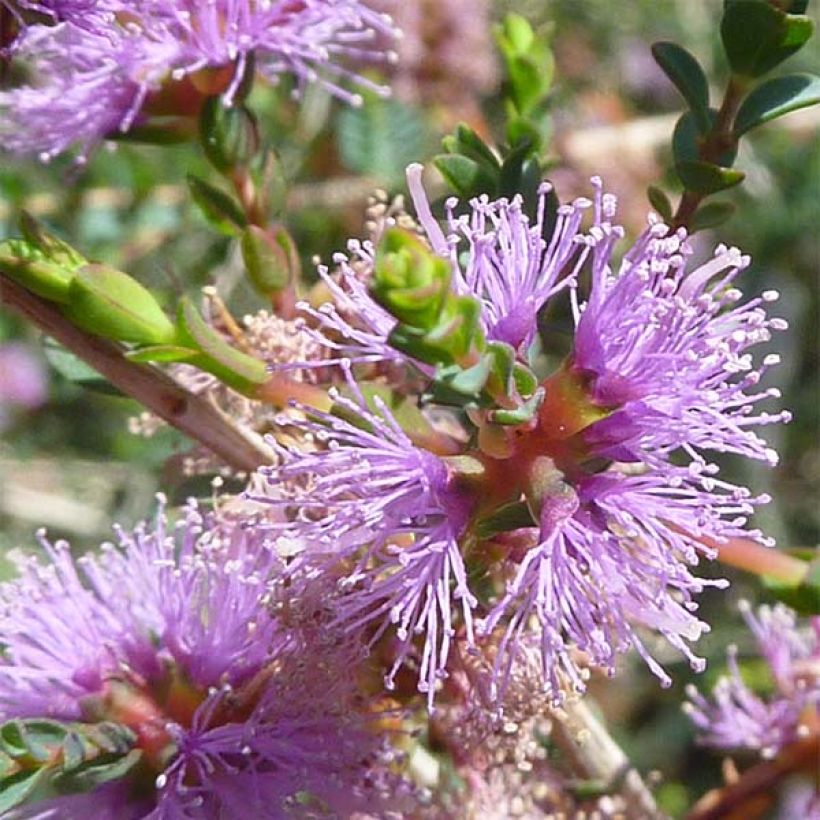

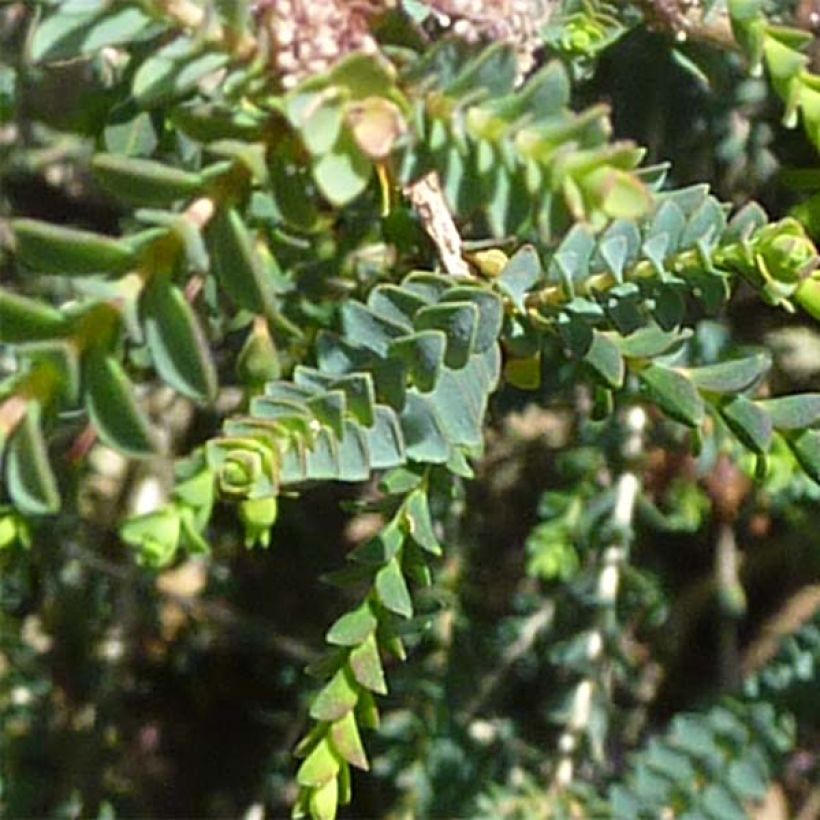

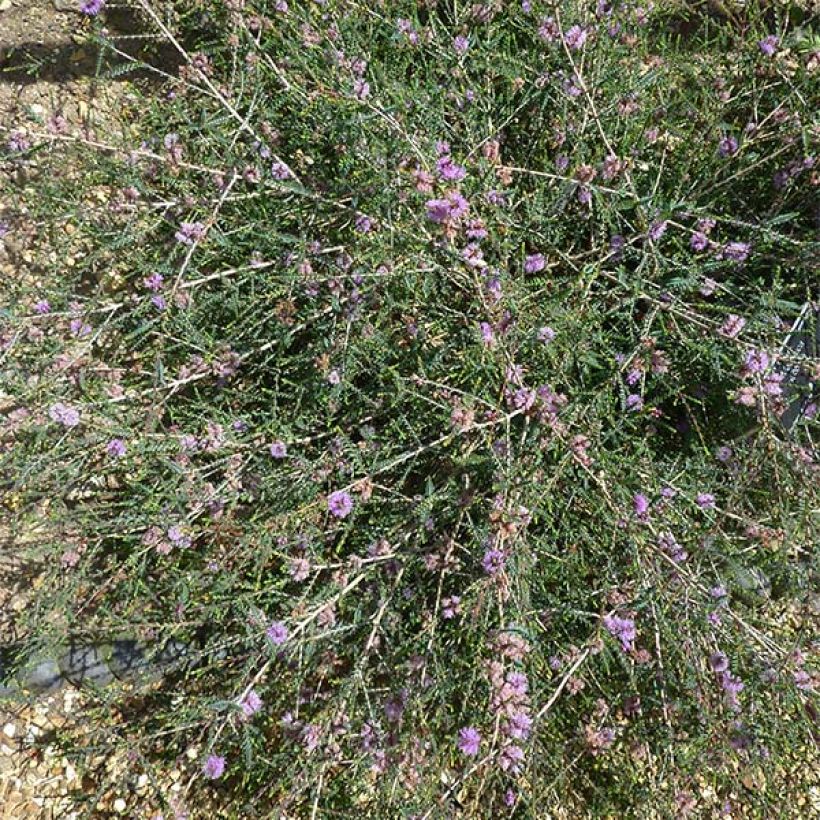

Plant habit
Flowering
Foliage
Botanical data
Melaleuca
gibbosa
Myrtaceae
Slender honey Myrtle, Cajeput Tree
Australia
Other Shrubs A to Z
Planting and care
Melaleuca gibbosa, hardy down to -8 to -10°C (17.6 to 14°F), will need protection against cold winds from the North and East during very cold winters. It adapts to a wide variety of soils, with a neutral or limestone tendency, supporting both occasionally flooded and occasionally dry soils. Choose a semi-shaded location in hot climates, or a sunny location in cooler climates. Prune it lightly (do not exceed a length equal to 1/3 of the branch size) after flowering to maintain a compact habit. In spring, it appreciates nutrient inputs (potting soil, manure), even though they are not essential: the Cajeput tree thrives in relatively poor soils. Allow the surface of the root ball to dry before watering again, and reduce watering in autumn as temperatures decrease.
It can be propagated by sowing seeds that are 1 or 2 years old, or by cuttings of semi-ripe stems after flowering, either in late spring or in September.
Planting period
Intended location
Care
-
, onOrder confirmed
Reply from on Promesse de fleurs
Evergreen shrubs
Haven't found what you were looking for?
Hardiness is the lowest winter temperature a plant can endure without suffering serious damage or even dying. However, hardiness is affected by location (a sheltered area, such as a patio), protection (winter cover) and soil type (hardiness is improved by well-drained soil).

Photo Sharing Terms & Conditions
In order to encourage gardeners to interact and share their experiences, Promesse de fleurs offers various media enabling content to be uploaded onto its Site - in particular via the ‘Photo sharing’ module.
The User agrees to refrain from:
- Posting any content that is illegal, prejudicial, insulting, racist, inciteful to hatred, revisionist, contrary to public decency, that infringes on privacy or on the privacy rights of third parties, in particular the publicity rights of persons and goods, intellectual property rights, or the right to privacy.
- Submitting content on behalf of a third party;
- Impersonate the identity of a third party and/or publish any personal information about a third party;
In general, the User undertakes to refrain from any unethical behaviour.
All Content (in particular text, comments, files, images, photos, videos, creative works, etc.), which may be subject to property or intellectual property rights, image or other private rights, shall remain the property of the User, subject to the limited rights granted by the terms of the licence granted by Promesse de fleurs as stated below. Users are at liberty to publish or not to publish such Content on the Site, notably via the ‘Photo Sharing’ facility, and accept that this Content shall be made public and freely accessible, notably on the Internet.
Users further acknowledge, undertake to have ,and guarantee that they hold all necessary rights and permissions to publish such material on the Site, in particular with regard to the legislation in force pertaining to any privacy, property, intellectual property, image, or contractual rights, or rights of any other nature. By publishing such Content on the Site, Users acknowledge accepting full liability as publishers of the Content within the meaning of the law, and grant Promesse de fleurs, free of charge, an inclusive, worldwide licence for the said Content for the entire duration of its publication, including all reproduction, representation, up/downloading, displaying, performing, transmission, and storage rights.
Users also grant permission for their name to be linked to the Content and accept that this link may not always be made available.
By engaging in posting material, Users consent to their Content becoming automatically accessible on the Internet, in particular on other sites and/or blogs and/or web pages of the Promesse de fleurs site, including in particular social pages and the Promesse de fleurs catalogue.
Users may secure the removal of entrusted content free of charge by issuing a simple request via our contact form.
The flowering period indicated on our website applies to countries and regions located in USDA zone 8 (France, the United Kingdom, Ireland, the Netherlands, etc.)
It will vary according to where you live:
- In zones 9 to 10 (Italy, Spain, Greece, etc.), flowering will occur about 2 to 4 weeks earlier.
- In zones 6 to 7 (Germany, Poland, Slovenia, and lower mountainous regions), flowering will be delayed by 2 to 3 weeks.
- In zone 5 (Central Europe, Scandinavia), blooming will be delayed by 3 to 5 weeks.
In temperate climates, pruning of spring-flowering shrubs (forsythia, spireas, etc.) should be done just after flowering.
Pruning of summer-flowering shrubs (Indian Lilac, Perovskia, etc.) can be done in winter or spring.
In cold regions as well as with frost-sensitive plants, avoid pruning too early when severe frosts may still occur.
The planting period indicated on our website applies to countries and regions located in USDA zone 8 (France, United Kingdom, Ireland, Netherlands).
It will vary according to where you live:
- In Mediterranean zones (Marseille, Madrid, Milan, etc.), autumn and winter are the best planting periods.
- In continental zones (Strasbourg, Munich, Vienna, etc.), delay planting by 2 to 3 weeks in spring and bring it forward by 2 to 4 weeks in autumn.
- In mountainous regions (the Alps, Pyrenees, Carpathians, etc.), it is best to plant in late spring (May-June) or late summer (August-September).
The harvesting period indicated on our website applies to countries and regions in USDA zone 8 (France, England, Ireland, the Netherlands).
In colder areas (Scandinavia, Poland, Austria...) fruit and vegetable harvests are likely to be delayed by 3-4 weeks.
In warmer areas (Italy, Spain, Greece, etc.), harvesting will probably take place earlier, depending on weather conditions.
The sowing periods indicated on our website apply to countries and regions within USDA Zone 8 (France, UK, Ireland, Netherlands).
In colder areas (Scandinavia, Poland, Austria...), delay any outdoor sowing by 3-4 weeks, or sow under glass.
In warmer climes (Italy, Spain, Greece, etc.), bring outdoor sowing forward by a few weeks.

































